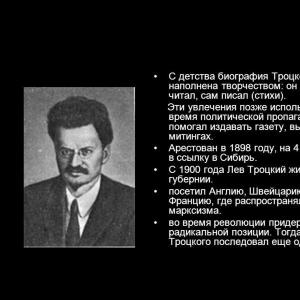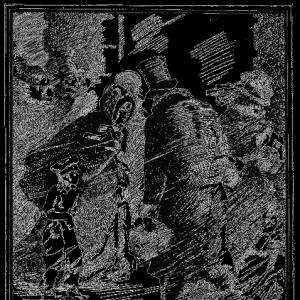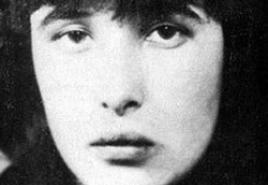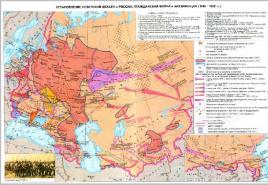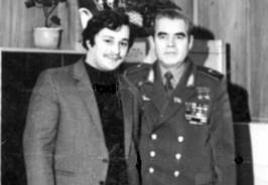England in the second half of the XIX - early XX centuries. Are the UK and England the same? England in
By the beginning of the XX century. England lost the first place in terms of industrial production, but remained the strongest maritime, colonial power and financial center of the world. In political life, the monarchist power continued to be limited and the role of parliament increased.
Economic development
In the 50-70s. England's economic positions in the world were as strong as ever.In the following decades, industrial production continued to grow, but much more slowly. In terms of the rate of development, British industry lagged behind American and German ones.The reason for this lag was that the factory equipment installed in the middle of the 19th century was outdated. Its renewal required large capital, but it was more profitable for banks to invest money in other countries than in the national economy. As a result, England ceased to be a "factory of the world" and at the beginning of the XX century. in terms of industrial production, it was in third place - after the United States and Germany.
As in other European countries, by the beginning of the XX century. a number of large monopolies arose in England: the Vickers and Armstrong trust in military production, the tobacco and salt trusts, and others. There were about 60 of them.
Agriculture at the end of the 19th century experienced a crisis caused by the import of cheap American grain and falling prices for local agricultural products. Landowners had to cut their acreage and many farmers went bankrupt.
Despite the loss of industrial primacy and the agricultural crisis, England remained one of the richest countries in the world. It owned huge capital, had the largest fleet, dominated the sea routes, and remained the largest colonial power.
Political system
At this time, the further development of the parliamentary system took place. The role of the cabinet of ministers and its head was increased, and the rights of the monarch and the house of lords were even more limited. Since 1911, the decisive word in the adoption of laws belonged to the House of Commons. The Lords could only delay the approval of the bills, but were not able to completely fail them.
In the middle of the XIX century. in England a two-party system was finally formed. The country was ruled in turn by two large bourgeois parties, which changed their names and strengthened the organs of leadership. The Tories became known as Conservatives, and the Whigs adopted the name of the Liberal Party.Despite differences in political orientation, both parties vigorously defended and strengthened the existing system.
For a long time, the leader of the Conservative Party was one of its founders, a flexible and intelligent politician B. Disraeli (1804-1881). Coming from a bourgeois intellectual family, he nevertheless showed respect for the aristocracy and traditions. However, Disraeli was not a defender of all traditions and an opponent of any reform. As head of the cabinet, he passed several laws in favor of the trade unions and workers.
W. Gladstone (1809-1898) was a prominent figure in the Liberal Party, who headed four cabinets. He put his political talent and oratorical skills at the service of the party, justifying even the most unseemly actions of the government, especially in the colonies.
Domestic politics of liberals and conservatives
The ruling circles felt strong pressure from the working class and the petty bourgeoisie to improve the economic situation and expand political rights. In order to prevent big shocks and maintain power, liberals and conservatives were forced to carry out a series of reforms.
As a result of their implementation, the number of voters increased significantly, although women and poor men did not receive voting rights (until 1918). The right of workers to strike was confirmed. Since 1911, workers began to receive benefits for sickness, disability and unemployment.
A feature of the political development of England was the expansion of democracy through peaceful reforms, and not as a result of revolutions, as in France and the United States.
But even in bourgeois-democratic England, far from all problems were solved. The national liberation struggle of the Irish did not stop. The liberals were ready to grant autonomy to the Irish Catholics, but encountered such fierce opposition from the Conservatives and Protestant circles that they were forced to abandon this intention. Only in 1921 Ireland (with the exception of Ulster) received autonomy.
Foreign and colonial policy
Leaders and conservatives and liberals sought to expand the British Empire (this is how Great Britain was called together with the colonies from the 70s of the XIX century).
One of the most staunch supporters of empire expansion (they called themselves imperialists) Cecil Rohde said: "What a pity we can't get to the stars ... I would annex (ie, take over) the planets if I could."
In North Africa, England occupied Egypt and conquered Sudan. In South Africa, the main goal of the British was to capture the republics of the Transvaal and Orange, founded by the descendants of the Dutch settlers - the Boers. As a result of the Anglo-Boer War (1899-1902), the 250,000-strong British army won, and the Boer republics became British colonies. In Asia, England occupied Upper Burma, the Malay Peninsula, and strengthened its positions in China. The wars of the British were accompanied by the ruthless extermination of local residents, who offered stubborn resistance to the colonialists.
On the eve of World War I, the British Empire occupied an area of \u200b\u200b35 million square meters. km with a population of over 400 million people, which accounted for more than a fifth of the earth's land area and a fourth of the world's population. (Think about these numbers and draw your conclusions.)
The exploitation of the colonies gave England huge profits, which made it possible to raise workers' wages and thereby alleviate political tensions. S. Rode said bluntly: "If you do not want a civil war, you must become imperialists."
Colonial conquests led to a clash between England and other countries, also striving to seize more foreign lands. The most serious enemy of the British was Germany. This forced the British government to conclude allied treaties with France and Russia.
Unions. Formation of the Labor Party
The economic opportunities of entrepreneurs and the state made it possible to increase the material well-being of a significant part of the population of England. Wages for the period from 1840 to 1900 increased by 50%, housing conditions and food for the population improved. But the wealth was distributed extremely unevenly. Poverty persisted, albeit to a lesser extent than before, and unemployment did not disappear. Half of the London workers had no money even for a decent funeral. Hundreds of thousands of Englishmen floated overseas in search of a better life.
All this created the basis for the labor movement, growth in the number and influence of trade unions. In 1868, the most massive trade union organization was founded - the British Congress of Trade Unions (BKT), which exists to this day. It included highly paid skilled workers. The BKT peacefully sought from entrepreneurs to raise wages and reduce working hours, and from parliament - the adoption of laws in favor of workers.
In 1900, on the initiative of the BKT, the first (after the Chartist) mass political organization of workers was founded - the Labor (i.e. workers') party. It included not only workers, but also representatives of the petty bourgeoisie and the intelligentsia, who played a leading role in the party. The Labor Party is still an influential political force today.Then she declared herself a defender of the interests of the workers and directed her main efforts towards winning seats in parliament and carrying out peaceful reforms. At the beginning of the XX century. its number has reached 1 million.
IT'S INTERESTING TO KNOW
In 1880, the Irish tenants for the first time used a boycott (disobedience, termination of work) against the British manager Boycott as a way to improve their situation. Since then, this word has become widespread.
English General Raglan died of cholera in the Crimea during the war of 1853-1856. The style of the coat in which the sleeves are one piece with the shoulder is named after him. The general wore just such a coat, since it did not hurt his wound.
References:
V.S.Koshelev, I.V. Orzhekhovsky, V.I.Sinitsa / World history of modern times XIX - early. XX century, 1998.
Tula State Pedagogical University. Leo Tolstoy
Department of English
abstract
England during the reign of George V
Completed: student 1aA
Namestnikova E.I.
Checked by: Associate Professor of the Department of English
Zykova L.V.
Tula-2002
GEORG V
George V (1865–1936), King of Great Britain. Born June 3, 1865 at Marlborough House (London), the second son of the Prince and Princess of Wales (later Edward VII and Queen Alexandra), was baptized George Friedrich Ernst Albert. Not assuming that he could take the throne, he received a naval education and served in the navy. In 1892, the untimely death of his elder brother, the Duke of Clarence, made him heir to the throne. Queen Victoria named him the Duke of York. In July 1893, he married Princess Victoria Mary of Teck, who had previously been engaged to his older brother. As heir to the throne, George received the Duchy of Cornwall, and on November 9, 1901, became Prince of Wales - after the coronation of his father Edward VII. After Edward's death on May 6, 1910, George was proclaimed the new king and was crowned on June 22, 1911 at Westminster Abbey. George V's reign began during a constitutional crisis in the House of Lords, which refused to approve a bill of Parliament restricting its powers to veto bills of the House of Commons. To resolve the crisis, George V promised additional support to the Liberal government, but after the victory of the Liberal Party in the 1910 elections, the bill was approved without additional measures. In 1911, George V visited India. This was the only British monarch to take such a step in the entire history of British rule over India. In 1914 it broke out. World War I. The king visited over 450 military units and over 300 hospitals with wounded soldiers. In 1917, due to anti-German sentiments, he changed the name of the royal house from Saxe-Coburg-Gotha to Windsor, renouncing all personal and family Germanic titles.
Throughout the 19th century, the nation's desire for independence intensified in Ireland. But in the north of the country, the independence movement met with resistance from trade unions and the Conservative Party. In 1916, the celebration of Easter in Dublin escalated into a civil war that ended with the proclamation of the Irish Free State (later the Republic of Ireland) in 1922 (see article by Patrick Pearce). At the same time, the six northern counties remained part of the UK. In 1923–1929, due to the economic crisis in Great Britain, there were frequent cabinet changes. The lack of a clear majority in 1924 among the three rival parties forced the king to replace Baldwin's Conservative prime minister with Labor MacDonald.
George V played an important conciliatory role in this and other situations, such as the General Strike of 1926. During the strike of miners and the general strike of 1926, the king used every opportunity to reconcile the parties. George V easily accepted the first Labor government appointed in 1924. After the World Economic Depression of 1929, the king convinced a union leader to lead a coalition
a national government made up of all parties that won the 1931 elections. George V was directly involved in the creation of the Westminster Act of 1931, according to which the parliaments of the British dominions could make their own laws independently of Great Britain. This increased the importance of the monarchy as the dominions, no longer subject to the British parliament, were now bound by a common oath of allegiance to the crown. George V began the tradition of an annual Christmas Radio broadcast for sovereign territories (now to the Commonwealth of Nations), which was first aired in 1932. George V died at Sandringham on January 20, 1936.
Germany and Britain, 1905-1919.
The growth of the economic and military potential of the German Empire became the main threat to the prosperity and security of Britain. Relations with Germany came to the fore in British politics between 1905 and the outbreak of World War I. In fact, it was the German threat that forced the British government in 1904 to decisively abandon the traditional policy of maintaining the balance of power. By 1907, France, Japan, Russia and Britain had entered into a potential alliance of sorts. In foreign policy, vigorous and generally successful steps have been taken to ease tensions and divisions between countries. Long-standing disagreements with the United States were resolved. In 1906 and 1907, the Transvaal and the Orange Free State, which had recently been at war with Britain, received responsible governments, and in 1910 four self-governing colonies of South Africa were united and received dominion status, like Canada in 1867 and Australia, which became part of the British Commonwealth in 1901. The Liberal government of Asquith (1908-1916) was inclined to introduce Home Rule in Ireland, but opposition in the House of Lords temporarily delayed the adoption of the relevant act.
Social reforms in the United Kingdom were also driven to some extent by the threat posed by Germany. The British population had to be kept on the alert and not allowed to discontent. In 1908-1911, steps were taken in the direction of the so-called. Welfare states. These first attempts were partial and admittedly inadequate, but nevertheless the costs of their implementation, together with the funds for rearmament, required a significant increase in taxes. Lloyd George, secretary of the Treasury in the Asquith government, proposed shifting the tax burden onto the large landowners. The House of Lords refused to approve this proposal. As a result, the same thing happened as in 1832. The government obtained the consent of George V to appoint new peers if necessary. The House of Lords again had to make the inevitable decision, and in 1910 the necessary law on parliament was passed. As a result, in 1911 the budget presented by Lloyd George was formalized into legislation. In addition, Home Rule for Ireland and the Church of England in Wales Act were passed in 1914. The implementation of these acts, however, was postponed due to the outbreak of world war.
The United Kingdom spent enormous sums in the First World War. Public debt rose from £ 651 million in the financial year 1914–1915 to more than £ 7.8 billion in 1919–1920. The spending continued after the end of the war. The interest on the debt and the need to pay pensions have put a heavy burden on the country. The number of killed and missing was approximately 680 thousand people, and the number of mobilized - 5.7 million. The war covered the entire globe and was fought on land, at sea and in the air. The greatest threat to the United Kingdom was the German submarine blockade, which resulted in Britain losing 7.6 million tonnes of merchant ships. Free trade, dependent on food imports, made the British population particularly vulnerable. In 1916 the dynamic Lloyd George succeeded Asquith as head of the coalition government. In the same year, a law on universal military service was adopted. The Easter Rising in Ireland in 1916 posed a threat to Britain in its own rear. The most difficult time came at the beginning of 1917. Russia withdrew from the war, and Germany launched military operations at sea. The British military suffered a crushing defeat in Mesopotamia. When the United States entered the war in April 1917, it remained unclear whether they would be able to form their armed forces in time and transfer them to the arena of hostilities. In 1917, Lloyd George achieved the formation of an imperial war cabinet, which included the prime ministers of the dominions and a representative of India. In 1918 the situation improved despite the fact that Germany, during the March offensive, made a desperate attempt to break through to the English Channel. In 1918, the United Kingdom was even able to pass an ambitious education law, as well as a new electoral law granting suffrage to women over the age of 30. From the outset of the war, the question arose as to how much the United Kingdom could rely on for the support of the dominions and colonies. However, aside from serious opposition to the war in southern Ireland and the failed attempt of a small group in South Africa to join German forces in South West Africa, the war did not entail the withdrawal of the Commonwealth states, which not only provided the United Kingdom with operational military bases, but also supported him with military personnel, money and provisions.
The period between the two wars, 1919-1939
From an economic point of view, the most pressing problem in the post-war era was the transition from a war economy to a peacetime economy. This process proved to be more difficult and time-consuming than expected, and was still ongoing during the Great Depression. Before the depression ended, preparations for a new war were on the agenda. From a political point of view, the agenda was the question of improving the social situation of the population, relations with Ireland, relations within the Commonwealth in general, the management of new mandated territories and, finally, finding the necessary balance between relations with the United States and relations with continental Europe.
Demobilization was carried out quickly and efficiently, but placing large numbers of men in the peaceful sector of the economy proved difficult. The situation in the coal industry became more complicated, when the wider use of oil reduced the need for coal. In 1925, the government allocated subsidies to the industry, but the next year it stopped helping. Then a strike of 1.2 million miners began, which quickly grew into a general strike that threatened to paralyze the economy. George V even considered himself obliged to take an extraordinary step, addressing the country's population with a warning about the danger of violence. The miners were ultimately forced to return to their jobs without a pay rise.
The outcome of Britain's involvement in World War II was mixed. The country retained its independence and made a significant contribution to the victory over fascism, at the same time it lost its role as a world leader and came close to losing its colonial status.
Political games
British military historiography often likes to remind you that the 1939 Molotov-Ribbentrop Pact effectively freed the hands of the German military machine. At the same time, in foggy Albion, the Munich agreement, signed by Britain jointly with France, Italy and Germany a year earlier, is bypassed. The result of this conspiracy was the partition of Czechoslovakia, which, according to many researchers, was the prelude to World War II.
On September 30, 1938, in Munich, Great Britain and Germany signed another agreement - a declaration of mutual non-aggression - which was the culmination of the British "policy of appeasement." Hitler quite easily managed to convince British Prime Minister Arthur Chamberlain that the Munich agreements would be a guarantee of security in Europe.
Historians believe that Britain had high hopes for diplomacy, with the help of which it hoped to rebuild the crumbling Versailles system, although already in 1938 many politicians warned peacekeepers: "Germany's concessions will only spur the aggressor!"
Chamberlain, returning to London, at the plane's ladder said: “I brought peace to our generation”, to which Winston Churchill, then a parliamentarian, prophetically remarked: “England was offered a choice between war and dishonor. She chose dishonor and will receive a war. "
"Strange War"
On September 1, 1939, Germany invaded Poland. On the same day, the Chamberlain government sent a note of protest to Berlin, and on September 3, Great Britain, as the guarantor of Poland's independence, declared war on Germany. Over the next ten days, the entire British Commonwealth will join it.
By mid-October, the British are ferrying four divisions to the continent and taking up positions along the Franco-Belgian border. Odanko, the section between the towns of Mold and Bayel, which is a continuation of the Maginot Line, was far from the epicenter of hostilities. More than 40 airfields were created here by the Allies, but instead of bombing German positions, British aviation began to scatter propaganda leaflets calling for the morality of the Germans.
In the following months, six more British divisions arrive in France, but neither the British nor the French are in a hurry to start active operations. This is how the "strange war" was fought. The head of the British General Staff, Edmund Ironside, described the situation as follows: "Passive waiting with all the excitement and anxiety that comes from this."
French writer Roland Dorgeles recalled how the Allies calmly watched the movement of German ammunition trains: "Obviously, the main concern of the high command was not to disturb the enemy."
Historians have no doubt that the "strange war" is explained by the wait-and-see attitude of the allies. Both Great Britain and France had to understand where the German aggression would turn after the capture of Poland. It is possible that if the Wehrmacht, after the Polish campaign, immediately began an invasion of the USSR, the Allies could support Hitler.
Miracle at Dunkirk
On May 10, 1940, according to the "Gelb" plan, Germany launched an invasion of Holland, Belgium and France. The political games are over. Churchill, who took office as Prime Minister of the United Kingdom, soberly assessed the forces of the enemy. As soon as German troops took control of Boulogne and Calais, he decided to evacuate the parts of the British expeditionary corps that were in the cauldron near Dunkirk, and with them the remnants of the French and Belgian divisions. 693 British and about 250 French ships under the command of British Rear Admiral Bertram Ramsey planned to ferry about 350,000 coalition soldiers across the English Channel.
Military experts had little faith in the success of the operation under the resounding name "Dynamo". The advance detachment of the 19th Panzer Corps, under the command of Colonel-General of German troops Heinz Guderian, was located a few kilometers from Dunkirk and, if desired, could easily defeat the demoralized allies. But a miracle happened: 337,131 soldiers, most of whom were British, almost without hindrance reached the opposite bank.
Hitler unexpectedly stopped the German offensive. Guderian called this decision purely political. Historians differed in their assessment of the controversial episode of the war. Someone thinks that the Fuhrer wanted to save his strength, but someone is sure of a secret agreement between the British and German governments.
One way or another, after the Dunkirk catastrophe, Britain remained the only country that escaped complete defeat and was able to withstand the seemingly invincible German machine. On June 10, 1940, England's position became threatening when Nazi Italy entered the war on the side of Nazi Germany.
Battle of England
No one canceled Germany's plans to compel Great Britain to surrender. In July 1940, the coastal convoys and naval bases of Britain were subjected to massive bombardment by the German Air Force. In August, the Luftwaffe switched to airfields and aircraft factories.
On August 24, German aircraft launched the first bombing strike on central London. In some opinion, wrong. The retaliatory attack was not long in coming. A day later, 81 British Air Force bomber flew to Berlin. No more than a dozen reached the goal, however, this was enough to infuriate Hitler. At a meeting of the German command in Holland, it was decided to unleash all the might of the Luftwaffe on the British Isles.
Within a few weeks, the sky over British cities turned into a boiling cauldron. Birmingham, Liverpool, Bristol, Cardiff, Coventry, Belfast got it. At least a thousand British citizens died in August. However, from the middle of September, the intensity of the bombing began to decrease due to the effective counteraction of the British fighter aircraft.
The battle for England is better characterized by numbers. A total of 2,913 British Air Force aircraft and 4,549 Luftwaffe aircraft were involved in air battles. The losses of the sides are estimated by historians at 1547 shot down fighters of the Royal Air Force and 1887 German aircraft.
Lady of the seas
It is known that after the effective bombing of England, Hitler intended to launch Operation Sea Lion to invade the British Isles. However, the desired air superiority was not achieved. In turn, the military command of the Reich was skeptical about the landing operation. In the opinion of German generals, the strength of the German army was precisely on land, and not at sea.
Military experts were convinced that the British land army was no stronger than the broken French Armed Forces and that Germany had every chance of winning over the United Kingdom troops in a ground operation. The English military historian Liddell Garth noted that England managed to hold out only at the expense of a water barrier.
Berlin realized that the German fleet was noticeably inferior to the British. For example, the British Navy by the beginning of the war had seven operational aircraft carriers and six more on the stocks, while Germany was never able to equip at least one of its aircraft carriers. In the sea, the presence of carrier-based aircraft could predetermine the outcome of any battle.
The German submarine fleet was able to inflict serious damage only on British merchant ships. However, by sinking 783 German submarines with US support, the British Navy won the Battle of the Atlantic. Until February 1942, the Fuhrer hoped to conquer England from the sea, until the commander of the Kriegsmarine (German Navy), Admiral Erich Raeder, finally convinced him to abandon this venture.
Colonial interests
Back in early 1939, the British Chiefs of Staff Committee recognized the defense of Egypt with its Suez Canal as one of the most important strategic tasks. Hence, the special attention of the Armed Forces of the Kingdom to the Mediterranean theater of operations.
Unfortunately, the British had to fight not at sea, but in the desert. May-June 1942 turned for England, according to historians, a "shameful defeat" at Tobruk from the African corps of Erwin Rommel. And this with a twofold superiority of the British in strength and technology!
The British were able to turn the tide of the North African campaign only in October 1942 at the battle of El Alamein. Again having a significant advantage (for example, 1200: 120 in aviation), General Montgomery's British expeditionary corps was able to defeat a grouping of 4 German and 8 Italian divisions under the command of Rommel.
Churchill remarked on this battle: “Before El Alamein, we did not win a single victory. After El Alamein, we have not suffered a single defeat. " By May 1943, British and American troops forced the 250,000-strong Italian-German group in Tunisia to surrender, which opened the way for the Allies in Italy. In North Africa, the British lost about 220 thousand soldiers and officers.
Europe again
On June 6, 1944, with the opening of the Second Front, British troops were given the opportunity to rehabilitate themselves for their shameful flight from the continent four years earlier. The general leadership of the allied ground forces was entrusted to the experienced Montgomery. The total superiority of the allies had already suppressed the resistance of the Germans in France by the end of August.
In a different vein, the events unfolded in December 1944 near the Ardennes, when the German armored group literally pushed through the lines of the American troops. In the Ardennes meat grinder, the US army lost over 19 thousand soldiers, the British - no more than two hundred.
This ratio of losses led to disagreements in the Allied camp. American generals Bradley and Patton threatened to resign if Montgomery did not leave the leadership of the army. Montgomery's self-confident statement at a press conference on January 7, 1945, that it was British troops who saved the Americans from the prospect of encirclement, jeopardized the further joint operation. Only thanks to the intervention of the Allied Commander-in-Chief, Dwight D. Eisenhower, the conflict was settled.
By the end of 1944, the Soviet Union had liberated a large part of the Balkan Peninsula, which caused serious concern in Britain. Churchill, who did not want to lose control over the important Mediterranean region, offered Stalin a division of the sphere of influence, as a result of which Romania got Moscow, Greece - London.
In fact, with the tacit consent of the USSR and the United States, Great Britain suppressed the resistance of the Greek communist forces and on January 11, 1945, established full control over Attica. It was then that a new enemy loomed clearly on the horizon of British foreign policy. “In my eyes, the Soviet threat has already replaced the Nazi enemy,” Churchill recalled in his memoirs.
According to the 12-volume History of World War II, Great Britain, along with the colonies, lost 450,000 people in World War II. Britain's spending on the war accounted for more than half of foreign investment; the Kingdom's foreign debt reached 3 billion pounds by the end of the war. The UK paid off all its debts only by 2006.
Bagheera historical site - secrets of history, mysteries of the universe. Secrets of great empires and ancient civilizations, the fate of disappeared treasures and biographies of people who changed the world, secrets of special services. Chronicle of war, description of battles and battles, intelligence operations of the past and present. World traditions, modern life in Russia, the unknown USSR, the main directions of culture and other related topics - all that official science is silent about.
Explore the secrets of history - it's interesting ...
Reading now
The decision to create the USSR Navy Oceanarium was made on June 18, 1965. In early April next year, the first tents of builders and scientists appeared on the shores of the Cossack Bay. Even now, the area of \u200b\u200bthe bay is one of the most deserted outskirts of Sevastopol, and in those days it was a real "bear's corner", where you had to get on foot, risking stumbling upon an unexploded shell that was waiting in the wings from the war. However, the remoteness and desolation of the area were quite consistent with the strict secrecy regime in which the Oceanarium was created ...
By the XXI century in the north of Eastern Siberia, fur-bearing animals, especially Arctic foxes, were thoroughly removed. The tradesmen climbed farther and farther to the Arctic Ocean. The history of the development of the Far North is full of heroic and tragic pages.
Scotland is famous for its haunted castles. But none of them is famous for so many mysterious phenomena as Glams Castle. It is believed that one of the rooms of the castle - Duncan Hall - inspired Shakespeare to describe the scene of the murder of King Duncan in the tragedy "Macbeth". We will also visit the most sinister castle in Europe ..!
When the British arrived in India in the 18th century, their biggest problem was the sweltering summer heat. Of course, the colonialists tried to fight this scourge: they slept in damp linen, hung soaked grass mats on windows and doors, hired special servants, abdars, to cool water, wine and ale with saltpeter. However, all this did not give the desired result.
EPRON. This abbreviation stands for Special Purpose Underwater Expedition. The organization was created at the OGPU in 1923 to carry out a special task - the search for treasures allegedly lying off the coast of Balaklava, in the Crimea.
Lavrenty Beria for many years was considered the most terrible person in the USSR, who destroyed millions of fellow citizens. But at the same time, even in Gorbachev's times, he was not particularly demonized, and sometimes even presented himself as a person worthy of respect. So is there anything to respect the most famous Stalinist People's Commissar?
We know little about the life of Jesus Christ, the God-man, in whom divine and human nature are united. Christian books speak of him a lot as the Messiah, Savior, Redeemer and Son of God. But the information about Jesus as the Son of man is fragmentary. The Bible (Gospel of Luni, 2.41-51) describes how, as a twelve-year-old boy, Jesus and his parents came to Jerusalem for the Easter holiday, where his parents then lost him in the crowd, but after three days they found him in full health, quietly talking in the temple with the priests ... The next time Jesus' age - about thirty years old - is mentioned only when describing his Baptism in the Jordan River (Gospel of Luni, 3.23). It remains unclear why almost 18 years fell out of the biblical chronology of Christ's life.
Exactly 40 years ago, in April 1970, all Soviet media reported that the Volzhsky Automobile Plant in Togliatti, which had been under construction for a little over three years, had released its first products. The new car at the same time received the trade name "Zhiguli". However, this purely Russian word for foreign countries turned out to be unacceptable, since in a number of countries it sounded, to put it mildly, ambiguous. Therefore, in the export version "VAZ-2101" and other models of the plant began to be called "Lada".


